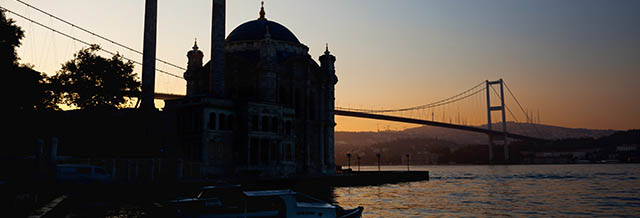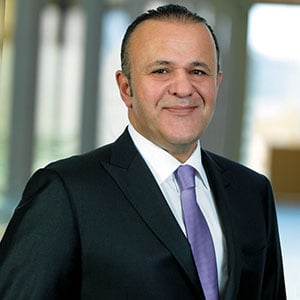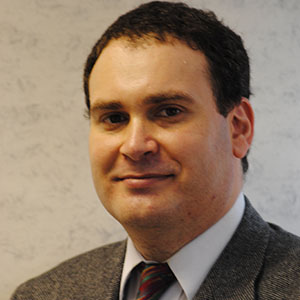Officials in Turkey have long declared their intentions to transform Istanbul into an international financial center. Islamic finance could be the key to making that goal a reality.

Officials in Turkey have long declared their intentions to transform Istanbul into an international financial center. These declarations, however, have remained largely unrealized. That is changing. The first steps to making Turkey a global financial center are well under way.
For openers, officials in the country aim to help domestic banks grab a bigger share of the $1.8 trillion Islamic finance market. The desire reflects president Erdoan’s and other senior AKP politicians’ disdain for securities that pay interest. The plan makes sense, though. Turkey is responsible for just 3% of global sukuk issuance. Malaysia boasts 67% of the market.
Currently, Islamic banking in Turkey is dominated by three lenders—Kuveyt Türk Katlm Bankasi, which plans to open the first Islamic bank in Germany in July; Albaraka Türk Katlm Bankas; and Türkiye Finans. However, three state banks that formerly steered clear of Islamic banking—Ziraat Bankasi, Halkbank and Vakifbank—are opening new units that will issue shariah-compliant products.
COURTING CONTROVERSY

The government’s controversial takeover of Bank Asya, an Islamic lender established by supporters of Fethullah Gulen—a former ally of president Erdoan who was later accused of fomenting a coup—should reinforce that bank’s foothold in the industry. The company’s plan is to boost Islamic banking’s slice of Turkey’s entire banking industry. The goal is to hike that share to 15% within the decade and to triple sector assets within five years.
It’s an ambitious target. But having conventional banks open Islamic finance divisions and issue shariah-compliant products makes the goal more achievable.
Other parts of the plan to turn Istanbul into a financial hub are moving ahead. About $2.6 billion has been invested to date in the appropriately named International Financial Center. When completed, the complex in Istanbul will be home to the head offices of Turkey’s financial market governing bodies, as well as to state-owned and private banks. The 45-million-square-foot district will also house, among other things, offices, retail shops, conference centers and hotels. All of this, notes Hüseyin Özkaya, CEO of Odeabank, “will be located on the Asian side of the [world’s] only transcontinental city.”
GOOD NEWS
Not surprisingly, the bid to raise Turkey’s profile on the global financial stage is good news for Borsa stanbul. The exchange comprises the former Istanbul Stock Exchange, the Gold Exchange and the Derivatives Exchange—which commemorated its second year of operation in April. “If we succeed in this project,” says the exchange’s acting chief executive Hüseyin Zafer, “we will see an increased capital flow to Turkish markets, and Borsa stanbul will benefit most. Such flows will support our volumes and profitability and diversify our investor/issuer base.”

Activity on the Borsa stanbul is already substantial. Consider the numbers: Some 423 companies are now quoted, with a market capitalization of $235 billion. By the end of 2014, traded values for equity markets had reached nearly $400 billion, while the value of trades of fixed-income securities had topped $3.6 trillion. At this juncture, Borsa stanbul, which aims to float 42% of its shares in an upcoming IPO, is the seventh-largest emerging markets stock exchange by trading volume and the fourth-largest bond market.
Much of the growth has been driven by the 2012 Capital Markets law, which greatly improved transparency. In addition, a strategic partnership with Nasdaq gives the exchange access to a state-of-the-art technology platform that is utilized by leading exchanges of the world. Some form of strategic partnership to echo the technology partnership already ongoing with Nasdaq is also in the cards.
If we succeed in this project, we will see an increased capital flow to Turkish markets, and Borsa stanbul will benefit most.
~ Hüseyin Zafer, Acting CEO; Borsa stanbul
High liquidity—and a market capitalization that comprises just a third of the country’s GDP—bodes well for the growth prospects of the Istanbul bourse, Zafer says. He notes that the traded value of equities in the first two months of the year was 34% higher than that of the same period in 2014. “We expect to see more and bigger IPOs in 2015, with equity business one of the main drivers,” he noted.
Still, the grand vision of Istanbul as financial hub could run into obstacles. Observers say the government will need to demonstrate it is serious about respecting the independence of institutions like the central bank and the Banking Regulation and Supervision Agency, which are above reproach in financial hubs like Kuala Lumpur, Singapore and London.
“Heavy-handed government interventions like at Bank Asya—where a plan to merge it with Ziraat Bankasi last August was scuppered after direct intervention from the top—have left a bad taste within the international investment community,” says Fadi Hakura, Turkey analyst and associate fellow at the Chatham House think tank in London. “This really matters, when you have ambitions to become a global financial power.”



